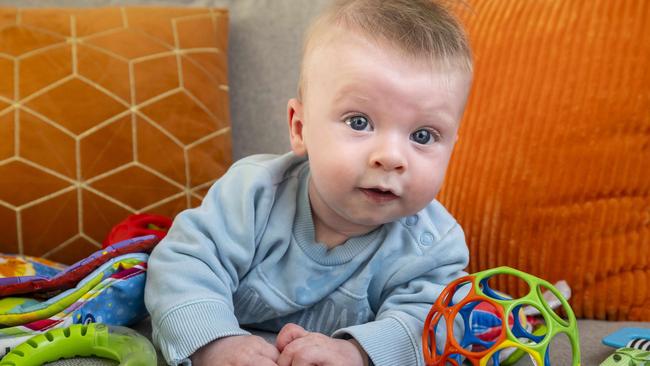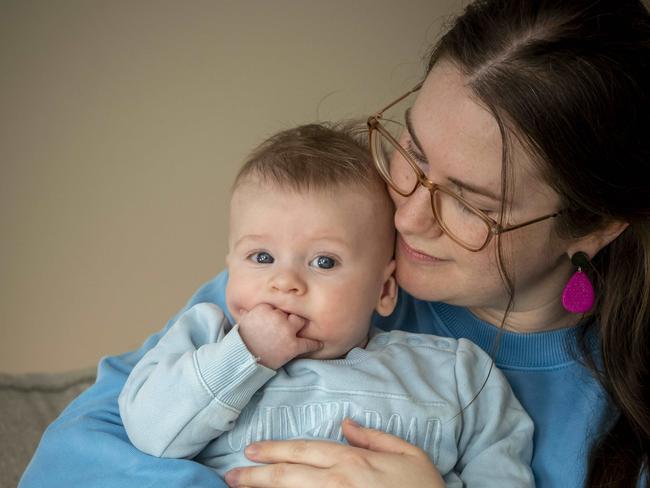Murdoch Children’s Research Institute-led study finds babies with food allergies have an increased risk of developing asthma
A world-first Melbourne study has revealed something every parent should know as researchers warn what to look out for.

Victoria
Don't miss out on the headlines from Victoria. Followed categories will be added to My News.
Babies with food allergies are almost four times more likely to develop asthma as children, even if they outgrow their allergy, a world-first local study has found.
The research, published in the Lancet Child and Adolescent Health, involved more than 5,200 Melbourne babies from the HealthNuts study.
The Murdoch Children’s Research Institute-led study found they had an increased risk of both developing asthma and, in an unexpected finding, reduced lung growth by the age of six.
The link was stronger in those who still had food allergies, but even children who outgrew the condition were at higher risk.

Murdoch Children’s epidemiologist Rachel Peters said the study was significant because it was the first to show these links with a clinical allergy diagnosis, as opposed to self-report.
“Parent-reported food allergy … overestimate the true prevalence,” she said.
“We’ve used the gold standard measures of food allergy.”
One in five Australian babies and one in ten children have a food allergy.
Associate Professor Peters said there were “similar immune mechanisms involved in the development” of both food allergies and asthma, which likely explains the link.
But she told the Herald Sun researchers were surprised – and concerned – by their lung function finding.
“Reduced lung growth in childhood is associated with health problems in adulthood including respiratory and heart conditions,” she said.
She said they think it could be related to restrictive diets that don’t replace key nutrients essential for kids’ growth, and encouraged parents to consult a dietitian for an allergy-safe, nutritious plan.
“We know from previous research that children with a food allergy can be shorter and lighter,” she said.
“Lung development is related to a child’s height and weight.”
The babies from the HealthNuts study are now teenagers, and will be returning for follow-up tests over the next two years.
Prof Peters said the next step would be to analyse these results to see if the patterns found at age six “persist into adolescence and beyond” and investigate if “preventing food allergies could help to prevent childhood asthma”.
She said their findings would encourage parents and clinicians of young children with allergies to keep a close eye on their respiratory health.
This could pave the way for earlier diagnosis and therefore treatment.
Melbourne mum Ellen Titterton said she was so focused on her 4-month-old son Isaac’s food allergies and diet, she had never thought about asthma until now.
“As a first-time parent, it’s good to have experts to let me know to look out for certain things,” she said.
It’s information Melbourne Mum Suba Slater wished she had when her 15-year-old son Zane, who is allergic to eggs, sesame and peanuts, was a baby.
She said he was not diagnosed with asthma until after he was rushed to hospital as a toddler.
“Had we been aware … when I’d been noticing that occasional wheezy breathing, I would have acted on that more,” she said.
“We didn’t know to look out for asthma.”




